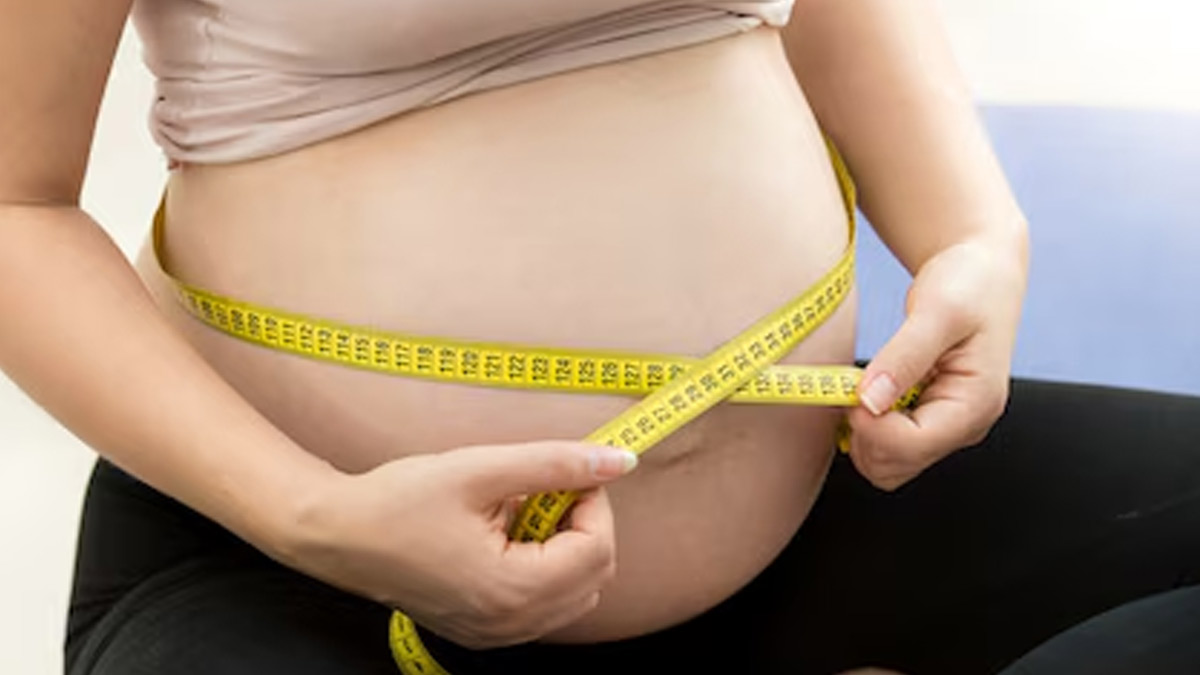
After giving birth, many new mothers find themselves juggling the demands of caring for a newborn while trying to take care of their own health. It can be overwhelming to navigate the changes in your body and lifestyle. Many women feel pressure to get back into shape quickly, but it’s important to remember that every journey is unique. Prioritising your well-being, including managing your weight, is essential not just for recovery but also for long-term health. We spoke to our expert Dr Manisha Ranjan, Obstetrician, Gynaecologist, Nidaan Mother and Child Care, Noida, who explained the right time for the mother to focus on body weight and health post-pregnancy.
Table of Content:-
According to a 2021 study, at the beginning of pregnancy, approximately 15-20% of women worldwide are classified as obese. During pregnancy, nearly half of these women (47%) experience excessive weight gain beyond the guidelines set by the Institute of Medicine (IOM). Within the first year after childbirth, around 20% of women retain an average of 1-5.5 kg of weight. Additionally, about 25% of women gain more than 2.25 kg during the late postpartum period, which is defined as 12-24 months after giving birth.
The Importance of Postpartum Recovery

"In the first six weeks following childbirth, a woman’s body is primarily in recovery mode. This period is often referred to as the postpartum phase, where significant physical and emotional changes occur," said Dr Ranjan. During these weeks, it’s vital to prioritise rest, nutrition, and healing. The focus should be on recovery rather than immediate weight loss.
Nutrition During the Postpartum Period
For mothers, especially those who are breastfeeding, proper nutrition is essential. "Breastfeeding not only provides nourishment to the baby but also burns calories, contributing to weight loss over time. However, trying to lose weight too soon can adversely affect energy levels and milk production, leading to fatigue and reduced milk supply," added Dr Ranjan.
Also Read: Navigating Postpartum: Expert Helps Understand Your Body's Journey After Childbirth
The Six-Week Check-Up

"Around six weeks postpartum, most women attend a check-up with their healthcare provider, who typically gives the green light for light physical activity. This marks an ideal opportunity for new mothers to begin incorporating gentle exercises into their routines," advised Dr Ranjan. Activities like walking, postpartum yoga, or stretching can be beneficial not only for physical recovery but also for mental well-being.
Mental Health Considerations
The postpartum period can be emotionally challenging, with many women experiencing feelings of anxiety or sadness. It has been found that exercise improves mood and alleviates symptoms of postpartum depression. Regular physical activity can also increase energy levels and promote better sleep, which is often elusive for new parents.
Also Read: Postpartum Depression: Expert Explains Impact Of Undiagnosed Or Untreated Postpartum Depression
Gradual Increase in Activity

"As mothers transition into the three to six-month postpartum phase, they can gradually increase the intensity of their physical activities. This is the time to introduce more structured exercise routines, such as strength training, and moderate aerobic exercises, and further explore postpartum fitness classes," added Dr Ranjan. The goal during this stage is to support gradual weight loss while rebuilding strength and stamina. According to the Journal Of Clinical Medicine, physical activity often needs to be paired with dietary changes to achieve the greatest benefits in weight management.
Setting Realistic Goals
Setting realistic and achievable goals is crucial in the postpartum period. Mothers should aim for gradual weight loss, typically no more than 1-2 pounds per week, which is considered a healthy and sustainable rate. “Crash diets and extreme exercise regimens are generally not recommended, as they can lead to burnout or health issues. Instead, a balanced approach that includes regular exercise, proper nutrition, and self-care can yield better long-term results,” highlighted Dr Ranjan.
[Disclaimer: This article contains information provided by an expert and is for informational purposes only. Hence, we advise you to consult your own professional if you are dealing with any health issues to avoid complications.]
Also watch this video
How we keep this article up to date:
We work with experts and keep a close eye on the latest in health and wellness. Whenever there is a new research or helpful information, we update our articles with accurate and useful advice.
Current Version
